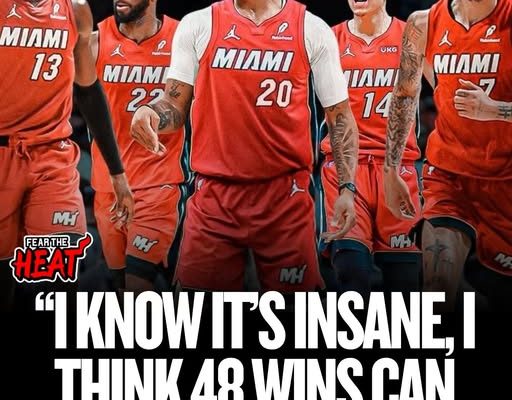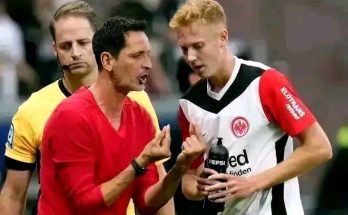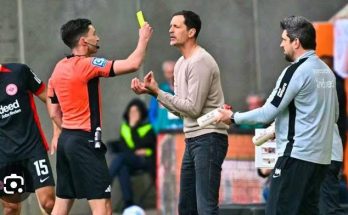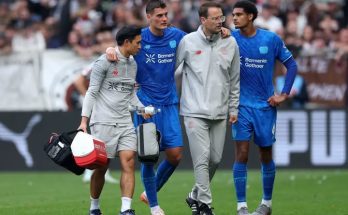Bill Simmons and Zach Lowe have long been two of the most insightful voices when it comes to analyzing NBA trends, team dynamics, and the overall pulse of the league. When they recently discussed the Miami Heat’s outlook for the upcoming season, their conversation carried a sense of measured optimism that caught the attention of basketball fans. Both Simmons and Lowe, known for their blend of analytical rigor and narrative-driven storytelling, believe that the Heat are entering a season where they could defy expectations despite the competitive landscape of the Eastern Conference. What stood out in their discussion was not just the acknowledgment of Miami’s recent track record of postseason success but also the recognition of the team’s ability to exceed regular-season predictions through resilience, coaching, and a well-defined culture.
Zach Lowe summed up his perspective with a simple but telling remark: “If you told me the Heat went 45-37 and got the 6th seed I wouldn’t be surprised.” This statement reflects both realism and optimism. It acknowledges the limitations of Miami’s roster when compared to some of the powerhouse teams in the East, such as the Boston Celtics and Milwaukee Bucks, but also signals that Miami is capable of outperforming its perceived ceiling. For the Heat, a 45-win season might not be flashy, but it could position them perfectly for another postseason run, especially considering the franchise’s history of thriving when it matters most. Bill Simmons, echoing Lowe’s sentiment, added that Miami’s proven ability to “punch above their weight” makes them one of the most fascinating teams to watch this season.
One of the central reasons for this optimism lies in the leadership of Erik Spoelstra, a coach widely regarded as one of the best in the NBA. Both Simmons and Lowe have consistently praised Spoelstra for his ability to adapt, innovate, and maximize the talent at his disposal. In recent years, the Heat have managed to reach two NBA Finals and a conference finals despite never being a top seed in the East during the regular season. This ability to rise to the occasion is not coincidental but rather a reflection of a well-oiled system built on preparation, accountability, and flexibility. Spoelstra’s schemes, especially on defense, allow Miami to consistently stay competitive, even when the roster lacks the star power or depth of some of their rivals.
Jimmy Butler, the undisputed leader of the team, remains the focal point of Miami’s success. Simmons pointed out that Butler’s postseason performances have become almost mythical, with the veteran forward turning into a different player once April arrives. While regular-season numbers for Butler are often understated, his ability to elevate his game in high-stakes situations has become the foundation of Miami’s identity. Lowe, however, highlighted the importance of Butler staying healthy during the regular season, noting that a 45-37 record and a 6th seed are only achievable if Butler can play at least 60 games while maintaining his usual efficiency. Both analysts agreed that while Miami’s championship hopes hinge on “Playoff Jimmy,” their regular-season performance will depend on how the supporting cast complements him.
The supporting cast, which includes Bam Adebayo, Tyler Herro, and a collection of role players, is another reason for optimism. Adebayo, in particular, has become a defensive anchor and a versatile offensive player who can handle the ball, initiate plays, and score when needed. Simmons suggested that Adebayo might be the most important player on the team in terms of bridging the gap between regular-season consistency and postseason dominance. Lowe concurred, adding that Adebayo’s ability to switch defensively and guard multiple positions allows Spoelstra to employ creative lineups that can match up with virtually any opponent.
Tyler Herro’s role was also a key topic of discussion. After a summer filled with trade rumors, particularly involving Damian Lillard, Herro enters the season with something to prove. Lowe mentioned that Herro’s scoring punch is essential for Miami’s offense, which at times can stagnate without a dynamic perimeter threat. Simmons added that Herro’s ability to create his own shot and stretch defenses will be a determining factor in how well Miami performs against elite Eastern Conference defenses. Both analysts acknowledged that while Herro’s defense remains a work in progress, his offensive firepower is indispensable, especially during the grind of an 82-game season.
Another recurring theme in Simmons and Lowe’s discussion was the Heat’s culture, often referred to as “Heat Culture.” This intangible but undeniable force is what has allowed the franchise to consistently develop undrafted players into valuable contributors. Names like Max Strus, Gabe Vincent, and Duncan Robinson have become synonymous with Miami’s ability to find diamonds in the rough. While Strus and Vincent departed during free agency, Simmons and Lowe believe that Miami will continue to unearth new contributors who can fill those roles. Players like Caleb Martin, who had a breakout performance during last year’s playoffs, are expected to shoulder bigger responsibilities this season. Both analysts agreed that Martin’s versatility on both ends of the floor makes him a perfect fit for Miami’s system and a potential X-factor in their quest for a top-six seed.
The Eastern Conference landscape is tougher than ever, with the Boston Celtics and Milwaukee Bucks emerging as the clear favorites following significant offseason moves. The Philadelphia 76ers, Cleveland Cavaliers, and New York Knicks also loom as formidable opponents. Lowe acknowledged that Miami might not have the regular-season firepower to challenge for a top-three seed but emphasized that they don’t need to. “This team is built for the playoffs,” Lowe remarked, pointing to Miami’s track record of outperforming higher-seeded teams in recent years. Simmons echoed this sentiment, suggesting that Miami’s veteran leadership and playoff experience give them an edge over younger, less battle-tested teams.
One area where both analysts expressed mild concern was Miami’s depth at the point guard position. With Kyle Lowry aging and no clear successor at the position, the Heat may struggle with playmaking during stretches when Butler and Adebayo are off the floor. Simmons suggested that Miami might explore trade options before the deadline to shore up their backcourt, while Lowe countered that Spoelstra’s system often mitigates the need for a traditional point guard by committee-style ball-handling. Regardless, both agreed that Miami’s ability to create offense consistently will be a key storyline to watch throughout the season.
Simmons also brought up the psychological advantage Miami seems to hold over certain opponents. Teams like the Bucks and Celtics, despite being more talented on paper, have at times struggled to impose their will on the Heat in the postseason. Lowe attributed this to Miami’s discipline, physicality, and mental toughness. “They’re never intimidated,” Lowe said. “Even if they’re the underdogs, they play like they belong.” This confidence, paired with Spoelstra’s tactical adjustments, often allows Miami to punch above its weight class. If the Heat can secure a mid-tier playoff seed, both analysts believe they will once again be a team no one wants to face in a seven-game series.
Another intriguing subplot discussed was the potential for internal growth. Simmons and Lowe both noted that players like Nikola Jović and rookie additions could provide a spark if they develop as expected. Miami’s player development program has historically been one of the best in the league, and both analysts expect at least one young player to emerge as a steady contributor. This depth will be crucial, particularly in a season where injuries and fatigue are inevitable.
The conversation ultimately circled back to the Heat’s identity as a team that thrives on defying conventional expectations. While other franchises rely on sheer talent and star power, Miami has built a sustainable model centered on adaptability, work ethic, and cohesion. Simmons highlighted that this approach not only makes the Heat a perennial playoff team but also keeps them relevant in trade discussions for potential stars. Even without a blockbuster move, Miami remains in the conversation as a dark-horse contender due to its organizational stability.
As the season approaches, the overarching message from Simmons and Lowe is clear: underestimate the Miami Heat at your own risk. While their prediction of a 45-37 record and a 6th seed might seem modest, it aligns perfectly with the Heat’s recent history of treating the regular season as a means to an end. Once the playoffs arrive, Miami transforms into a team capable of beating anyone, anywhere. For fans and analysts alike, this combination of regular-season grit and postseason pedigree is what makes the Heat one of the most captivating teams in the NBA.



